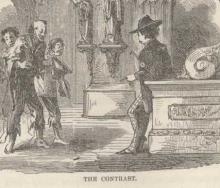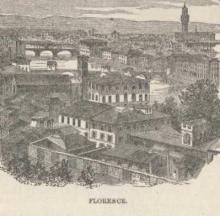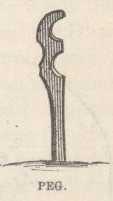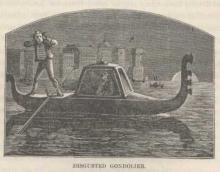The Innocents Abroad - Chapter 25

This chapter is not so much about a location in Italy but about the extremes of "magnificence and misery" found here. He is particularly critical of Florence and the Medici family. And, again he criticizes to "old masters". "... but I keep on protesting against the groveling spirit that could persuade those masters to prostitute their noble talents to the adulation of such monsters as the French, Venetian and Florentine Princes of two and three hundred years ago, all the same.


